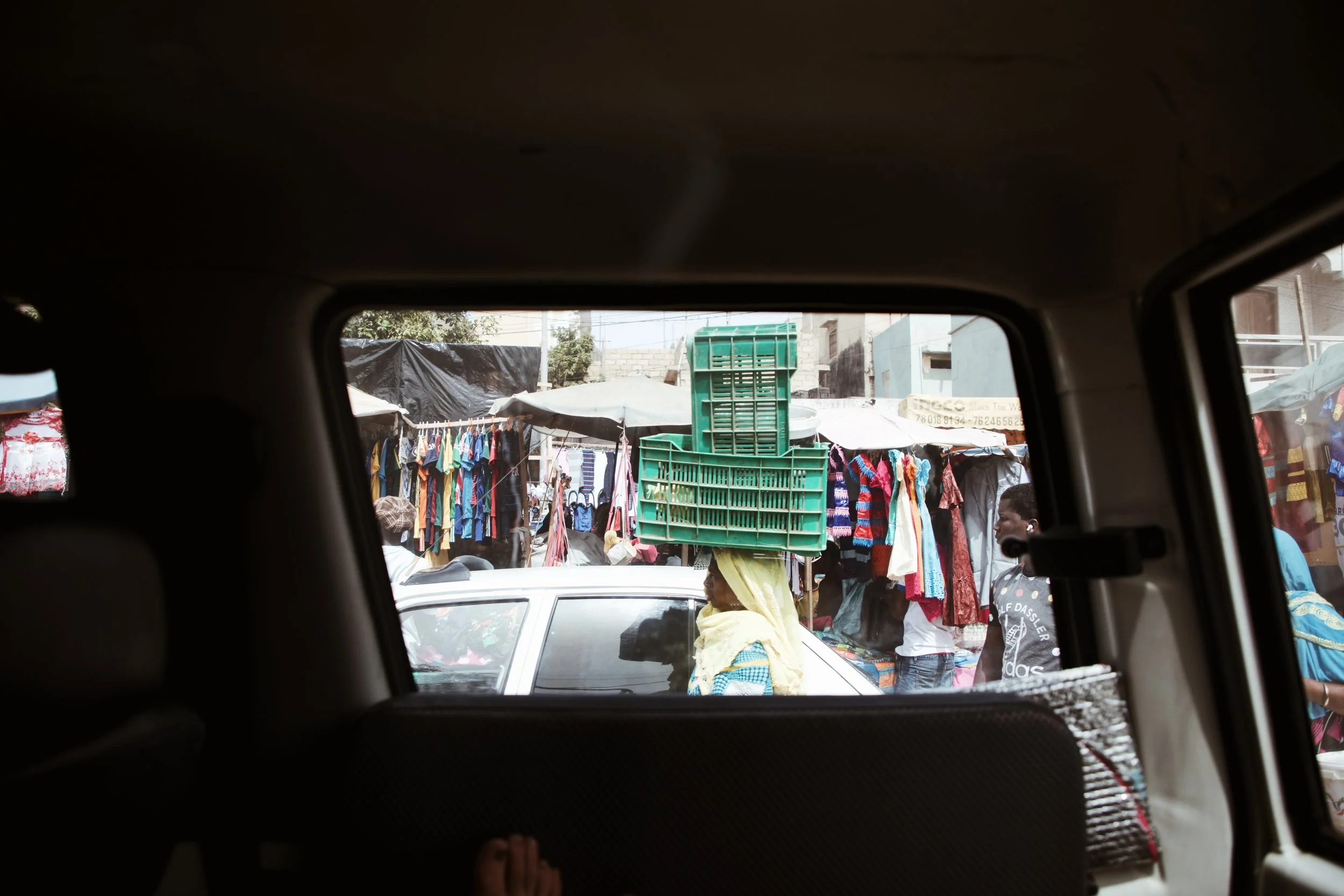As I write this, the blue canvas around me is smudged with charcoal with the remainder of last night's fire. The rock of West Africa, Senegal, burns literally and physically with fear with political unrest for the country's threatened democracy.
Each of my senses is alarmed; I taste ash and smell a bizarre and specific aroma of fish mixed with roasted rubber. My skin feels coated from the sea's humidity. The city, usually filled with appropriate sounds of traffic and life, is now muted. I only hear the soft hum of the Global Mercy's engine and the buzz of the fly who has decided to assist me. And I see the lingering charcoal rising from the skyline.
My senses activate a turning pit in my stomach with emotions of empathy, deep frustration, and defeat. I have been in Senegal for almost two years. Traveling throughout the country, falling deeply in love with the culture, the music, and the people that make those things come alive. During an assignment in the fishing town of Saint Louis, I had been busy making connections with individuals that work in the local hospitals, going to neighborhoods, photographing futbol games on the beach with a Sherbet backdrop, the horizon lost in colorful swirls, a Karate club lead by a coach with zeal for the youth of this city. I had countless moments I wanted to bottle to hold close.
In contrast, there were scenes I wished to put in a different bottle, a bottle for bad dreams. It would include scenes of the various hospitals. It would consist of the reality of the young fisherman preparing to leave his family to make the dangerous journey in a fishing boat to Spain, hopeful of escaping the generational lack. The dinner scene with my colleagues, the deep complexity of tribal tension, each feeling disrespected over a misunderstanding.
I rarely cry, but when I walked to my hotel, exhausted and holding both full bottles, I heard the faint sound of a kitten. The kitten was calling for help stuck under mountains of concrete. I looked at my dear friend and fellow volunteer Eugene, videographer, and he nodded knowing my unspoken request. We located the trapped animal, set our gear down, and began our rescue mission. After forty minutes of investigation, with the helpless cry ringing in our ears, we failed. Once in the solitude of my hot hotel room, I sat on my bed, looking at the crooked picture of a Senegalese fishing boat across from me, and I started to weep. I wept for the cat, the young fisherman, the patients, and the determined medical professionals trying to make a difference with so few resources. I cried for the coach, his belief that karate could bring hope to his community, and how weak I was.
These moments bring up the natural existential question: is there a God? If so, is there a contradiction of God's justice and goodness?
Not uniquely, I have been faced with this question repeatedly. From childhood, I read about the world wars and the civil rights movement, enthralled and disappointed with the repetition of history. I have been confused with the mysticism of Christianity and the atrocities caused by the church. The audacity to say "God is good, he loves you" to someone suffering is hollow and hard to stomach.
The constant questioning is a tiresome cycle, yet, I can’t help but see goodness, magnificence, and purity. I am disciplined in watching the show displayed by the sunrise almost every morning. I see merit in our patients. That is the reality for many Mercy Ships patients who have been mocked somehow still have kindness gleaming in their eyes. How nature intricately works together, down to every molecule. I have seen goodness emerge from the horror of a sex ring raid in Las Vegas. I did a story for the newspaper on the woman who ran the safe house the victims were brought to. She was once a victim, now passionate about providing a place of respite and redemption for others. The way my Senegalese coworkers can sing and laugh when we are outside in the heat for hours while there are whispers of complaints from the western crew (cough, cough, myself).
I found myself latching onto the philosophy of Saint Augustine. There is no evil; one can only turn away from good. A God that is good and allows moral freedom, Augustine asked: Do we have convincing evidence that a good God exists? If independent evidence leads us to conclude that God exists and is good, He would be incapable of creating evil." So either God is good, or he doesn't exist.
I continue to revisit the model of mercy ships. When Jesus said, "We will do greater things than He," and how I witness that daily. There is such a broad impact involving hundreds of people. Brilliant surgeons, cooks, therapists, janitorial staff, and maritime workers have studied to perfect their craft. They are now used with the shared goal of healing—a ripple effect of individuals choosing to volunteer and emphasizing the validation of life.
Gary Parker, a surgeon on board for 36 years as a volunteer, said this week, "For hope to be credible in the future, it needs to be tangible in the present."
We see miracle after miracle, the blind seeing for the first time faces being reconstructed after being eaten away by Noma, a flesh-eating virus, and the lame being able to walk.
So though, as I am tempted to question as the blue sky is tarnished from the smoke of injustice, I exhale in the complexity of God's goodness and hope to continue to witness it demonstrated.
